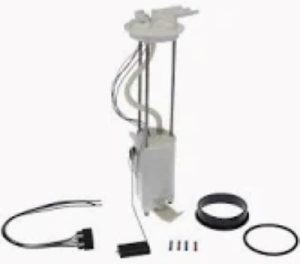A fuel pump can influence fuel economy, but only as designed, defined with the pump, makeup and the engine. Today, electric fuel pumps use around 85% efficiency, pumping just the right amount of fuel into the intake, as determined by the engine’s control module. In high-efficiency configurations, this precise fueling lowers fuel waste, which in turn can be helpfully reflected in improved mileage with a similarly efficient fuel injection system.
Constant high pressure fuel pumps serve the purpose far from Tokyo, where pumps are good at preventing over-fueling or under-fueling (30% MPG LOSS at 4,000 RPM at 35 PSI on the engine). By keeping the fuel pressure at the correct level, whether accelerating, cruising, or even idling, the engine runs better, which in some cars (especially turbocharged ones with specific fuel-to-air ratio requirements) has been proven to improve fuel economy by 5%, according to the National Highway Traffic Safety Administration.
Aftermarket adjustable-pressure fuel pumps provide advantages, too; faster flow can help tune fuel flow to match how you drive. Performance drivers may crank up the fuel flow for more power, while those focused on efficiency keep pressure on the low side and safe. According to a study carried out by the Automotive Research Institute, cars fitted with high-efficiency aftermarket pumps were found to have 3-4% better fuel economy, especially for fuel injected engines that are precision oriented.

Conversely, a struggling fuel pump may negatively affect gas mileage. An engine control unit (ECU) in your car tells the fuel injectors how much fuel to deliver based on the pressure senses from the fuel pump, but a faulty boost pump can cause major discrepancies in pressure, forcing the ECU to compensate resulting in fuel injector rates that vary between the ideal and not, essentially wasting fuel. Mechanical fuel pumps, typically seen in older vehicles, can lose efficiency (and thus fuel economy by reducing the effective fuel-to-air mix) as they age due to worn parts.
As Henry Ford so famously coined, Efficiency “is doing better what is already being done.” This is consistent with fuel pump advancements in modern cars since even minor gains in fuel economy results in reduction in fuel costs and decrease of carbon footprint.
In conclusion, a properly working and matching fuel pump can increase the fuel economy of cars by making way for fuel in a manner that they are neither wasted, nor are given out in an unnecessary amount. For a low-maintenance workhorse with high efficiency, pumps provided by Fuel Pump are designed to ensure maximal fuel utilization with steady performance.
